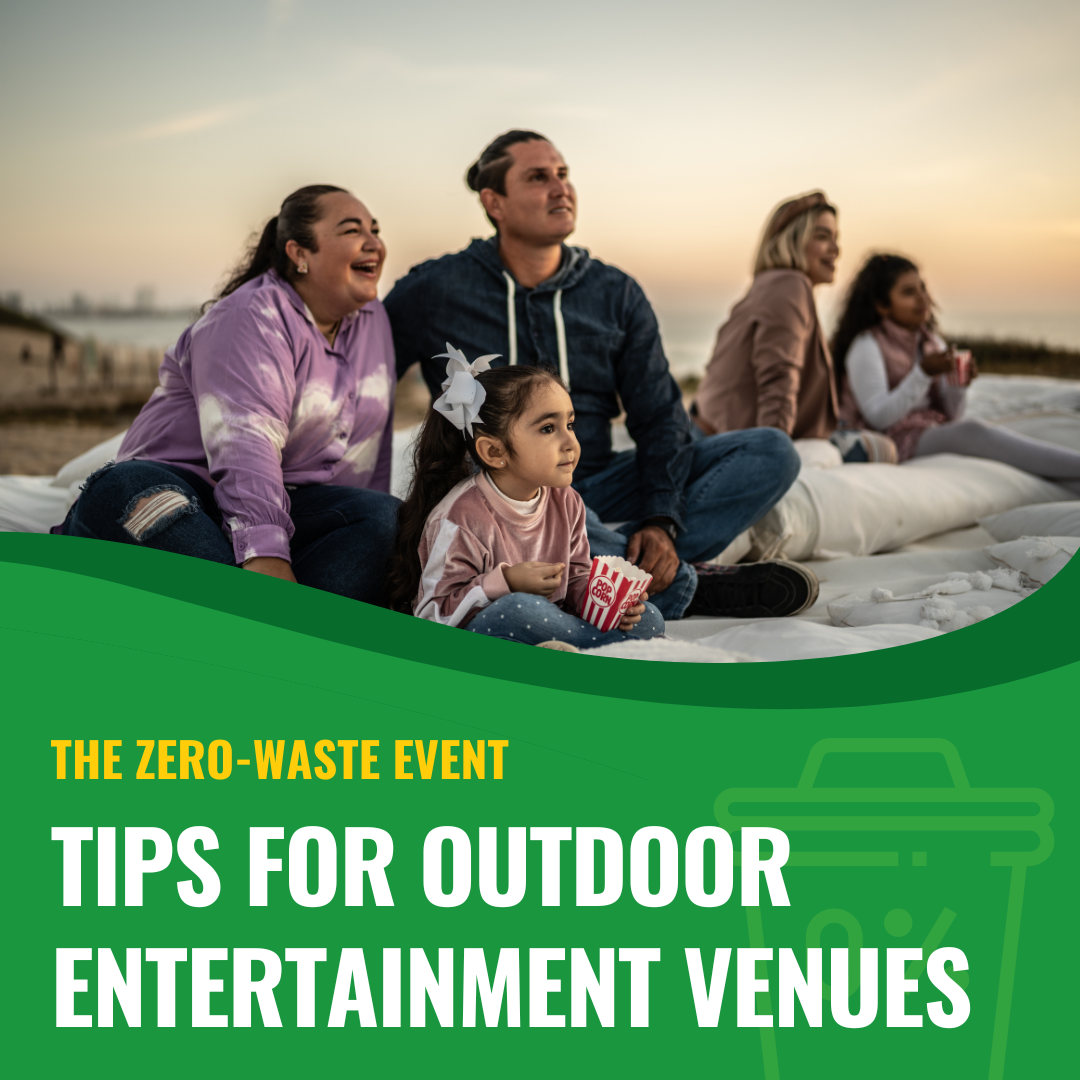We use cookies to make your experience better. To comply with the new e-Privacy directive, we need to ask for your consent to set the cookies. Learn more.
The Zero-Waste Event: Tips for Outdoor Entertainment Venues
Summer is the busy season for concerts, festivals, and other outdoor events. And while these get-togethers build a sense of community and provide family-friendly activities, they also create a waste management challenge. Luckily, there are plenty of GSA-approved companies that provide specialized equipment for diverting waste from landfills as well as resources for throwing a zero-waste event.

In fact, throwing an eco-friendly community party has never been easier.
The concept of a zero-waste event has gained steam over the past decade, and event planners have more reasons than ever to divert as much waste as possible from landfills. Growing concern for sustainability is fueling the movement, and widely available recycling services and commercial composters are making it feasible for everyone.
There are plenty of freely available planning guides for zero-waste events, like this one from Seven Generations Ahead or this one from UC Santa Cruz.
The most important part of hosting a zero-waste event is providing separate bins for compost, recycling, and trash with clear signage.
There should be no stand-alone trash cans, as recycling and compostable products will inevitably end up in the trash when there is no alternative bin. To increase the yield of compostable materials (which is often a challenge for these events), here are a few pointers from previous successful zero-waste events:
- Encourage vendors to use only compostable packaging.
- Buy compostable utensils and provide signage where they are stored (If festival goers don't know the utensils are compostable, they'll throw them in the landfill trash.).
- Line compost bins with compostable trash bags.
- Provide clear instructions on the composting bin (You may need to check with your specific compost hauler to see what is and is not accepted.).
Staffing collection points with volunteers can improve correct sorting. As communities attend more zero-waste events, they'll become accustomed to the process. For the first few events, it may be necessary to do some post-collection sorting to ensure appropriate separation of the waste streams.
Next, contact haulers to collect your three waste streams.
Commercial composters, recyclers, and trash haulers can place roll-off dumpsters in designated areas. Throughout the event, volunteers or waste management workers can empty full trash cans into these collection points.
Hydraulic trash can dumpers (also called bin dumpers) make emptying wheelie bins into roll-off dumpsters safer and easier. Because large trash cans are heavy and awkward to lift, a mechanical lifting device helps prevent musculoskeletal disorders and more acute injuries and strains.
Volunteers can quickly learn how to operate bin dumpers like the DumpMaster, which has a protective guard and simple operator controls. And because trash can dumpers are portable, departments or organizations can use them for run-of-the-mill waste management throughout the year and then deploy them periodically for special events.
Remember, the goal is to reduce the amount of waste sent to landfills.
If your first attempt at a zero-waste event yields less recycling and compost than you hoped for, try to pinpoint problem areas. Were vendors using non-compostable containers, or was signage hard to read? By self-reflecting you can improve the process and reduce waste further during your next event. And by raising awareness among your community, your zero-waste event will already be a success.
References:
"Zero Waste Events." Sustainability Office-UC Santa Cruz. 2018. Web. 23 Apr. 2018.
"Zero Waste Event Planning Guide." Seven Generations Ahead. n.d. Web. 23 Apr. 2018.
